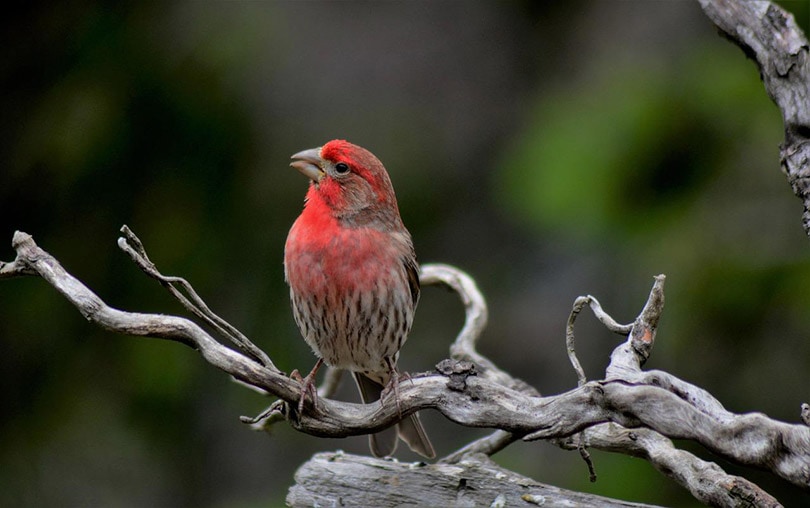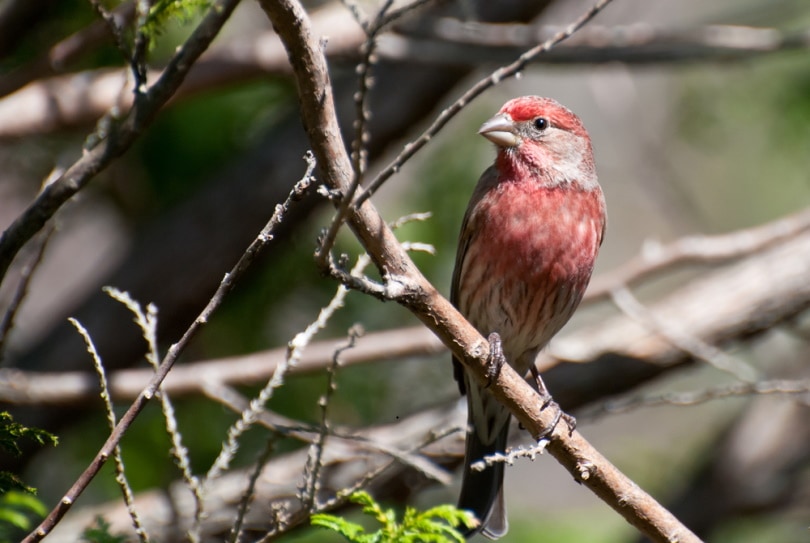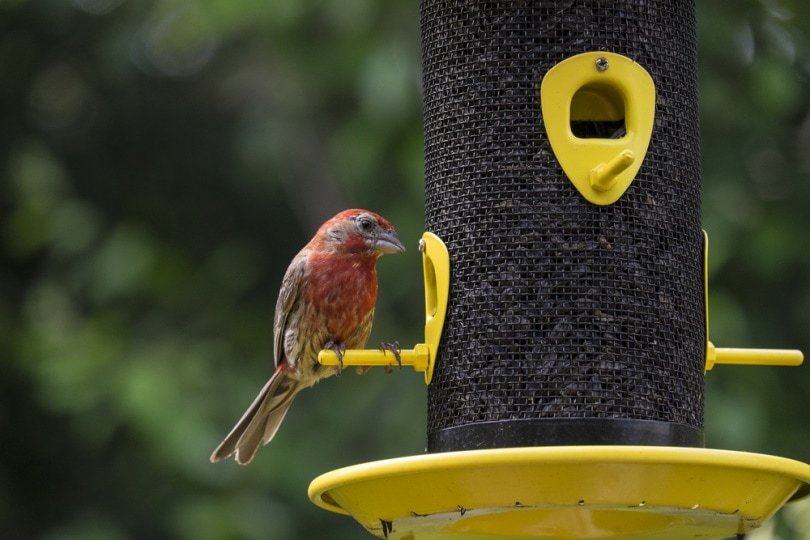How to Get Rid of House Finches — 6 Tips and Tricks
Last Updated on

The house finch is an extremely common bird that you can find anywhere in North America. It’s a common sight at backyard bird feeders, and many people even keep them as pets because they are friendly toward other birds and easy to maintain. However, some people see them as pests that they’d like to keep off their property. If that sounds like your situation, keep reading as we provide you with several tips and tricks you can use to free yourself of these birds.

What Is a House Finch?
A house finch is a smallish bird that usually grows 5–6 inches long and has an 8- to 10-inch wingspan. It has a square tip tail, and the males can be several different colors but typically have red highlights. The colors can darken or soften depending on the food the bird eats.

Why Is the House Finch Bad?
The house finch is a calm and friendly bird that gets along with other birds and is not aggressive toward humans. However, many people consider it invasive because it’s native to only California and Mexico. A New York pet store owner released illegally obtained birds to escape persecution from the police. A few years later, spectators noticed nests in the wild, and their range kept growing. Today, they are among the most common birds in North America. Though they are friendly, they are using up important resources that native birds require.
Another reason that many people don’t like house finches is that they like to form small groups. When in good company, these birds get quite playful and tend to sing often, which can create quite a bit of noise.
Since these birds enjoy living in groups, they’re more likely to spread disease, especially to other birds around the feeder.
The house finch is a vegetarian, often eating seeds, berries, and other vegetation. They can cause considerable damage to a farmer’s crop if a group of them is in the area.

How to Get Rid of a House Finch
1. Upside-Down Perch Feeders
If you are worried that house finches visiting your backyard feeder are pushing out native species, you can try to convince them to look for food elsewhere by using an upside-down perch feeder. The house finch likes to rest in an upright perch while it eats, so it will not pick the upside-down version and will likely choose another location to eat.
2. Remove Piles of Brush
Piles of brush on your property can protect the house finch. They can also contain food that might convince the bird to stay. Removing the piles will eliminate the protection and open the area, making it less inviting to the house finch.

3. Trim Your Trees
The house finch spends most of its time in trees, especially in cooler environments. Trimming the tree will help reduce available space, and your proximity might convince these birds to move elsewhere.
4. Seal Holes
The house finch likes to make nests in attics or garages, and it will readily do so if it can find a way in. Look over these structures carefully each season for any small holes that might grant an entrance to your garage or attic, and plug them up before the birds find their way inside.
5. Scarecrow
While it’s not as effective as it is for other birds, you can try using a scarecrow or another bird deterrent to convince the house finch to move elsewhere. The downside to using a scarecrow is it can scare away other birds that you might want on your property.

6. Contact a Professional
If you tried these ideas and did not find success, you need to call a professional. It is illegal to capture wild birds, so you must contact someone authorized to do it. Most towns and cities have a critter control specialist to help you solve your problem.

Final Thoughts
The house finch is typically quite popular, and many people enjoy seeing these birds and hearing their songs as they visit their backyard feeders. However, some people see this species as invasive and reducing the food supply for other birds, so convincing them to move on can be ideal. If the problem is at your feeder, switching to an upside-down perch feeder can be a good solution. However, doing so may also cause other birds that like upright perching feeders to move elsewhere. If the problem is in your home or garage, you can inspect your property or hire someone to do it for you to find any small holes that the birds might be using to get in and make nests.
Featured Image Credit: bryanhanson1956, Pixabay
About the Author Ed Malaker
Ed Malaker is a veteran writer who contributes to a wide range of blogs covering information on computer programming, pets, birding, tools, fitness, guitars, and optics. Outside of writing, Ed is often found working in the garden or performing DIY projects in the house. Ed is also a musician, spending his time composing music for independent films or helping people repair their guitars.
Related Articles:
How to Collimate Binoculars: 9 Expert Tips
How to Clean a Rifle Scope: 8 Expert Tips
How to Choose Binoculars for Bird Watching: 10 Expert Tips
10 Types of Hummingbirds in Arkansas (With Pictures)
8 Types of Hummingbirds in Nebraska (With Pictures)
5 Types of Hummingbirds in Idaho (With Pictures)
3 Types of Hummingbirds in Mississippi (With Pictures)
8 Types of Hummingbirds in Kansas (With Pictures)
